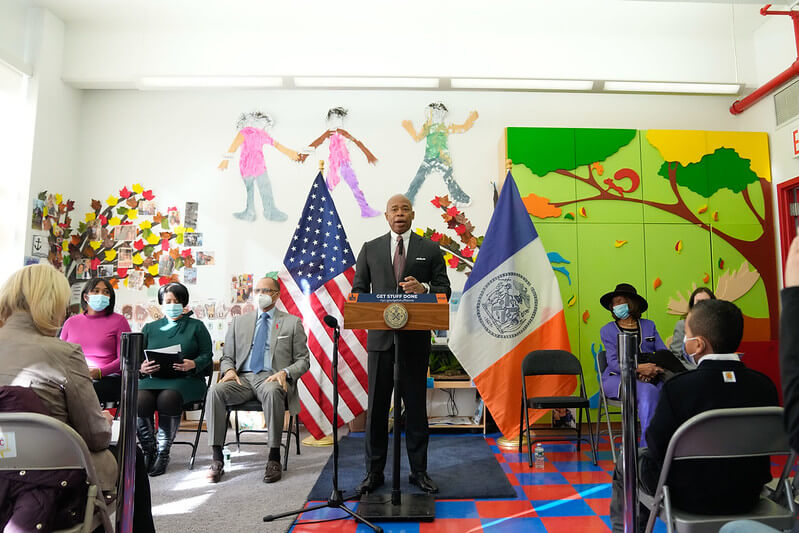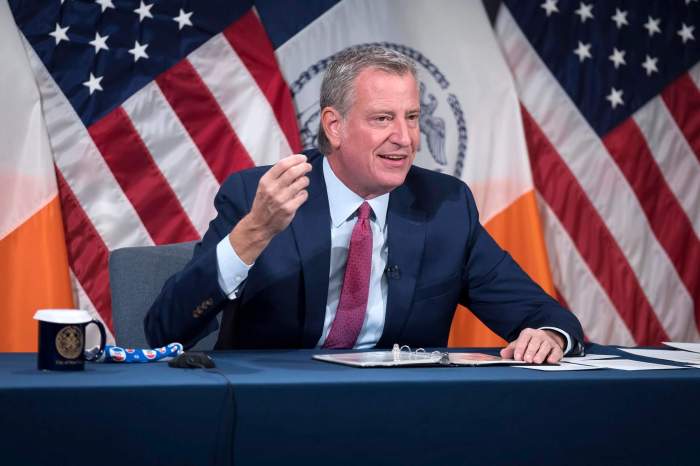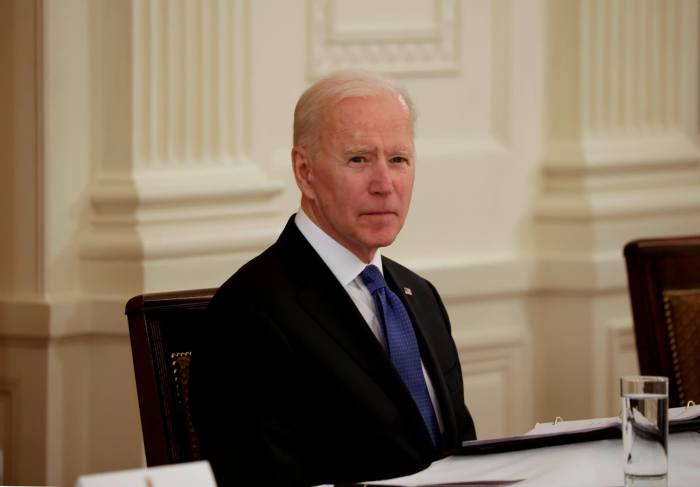The Adams administration is taking several steps to improve the city’s pre-K and 3-K programs for special education students by adding 800 new seats across both, elongating the length of their school days and increasing early childhood special education teachers’ pay, the mayor and Department of Education (DOE) Chancellor David Banks announced Tuesday.
The changes are the result of 65 provider “contract enhancements” backed by a $130 million allocation for special early childhood education programs over the next two years, according to City Hall. Those funds will go towards “stabilizing” 3,000 pre-K and 3-K seats for students with disabilities, which includes the added seats, hours and pay.
Until now, Adams said during a press conference announcing the changes in East Harlem Tuesday morning, the city’s universal pre-K and 3-K seats for children with disabilities were few and far between, leaving many children waiting several months at home for an open seat. This meant, Adams charged, that the programs – introduced under his predecessor Bill de Blasio – weren’t truly universal.
“The previous ideas of universal 3-K and pre-K do not account for children with disabilities. It was just wrong,” Adams said. “And I disagree with the definition of universal that doesn’t include all of our children.”
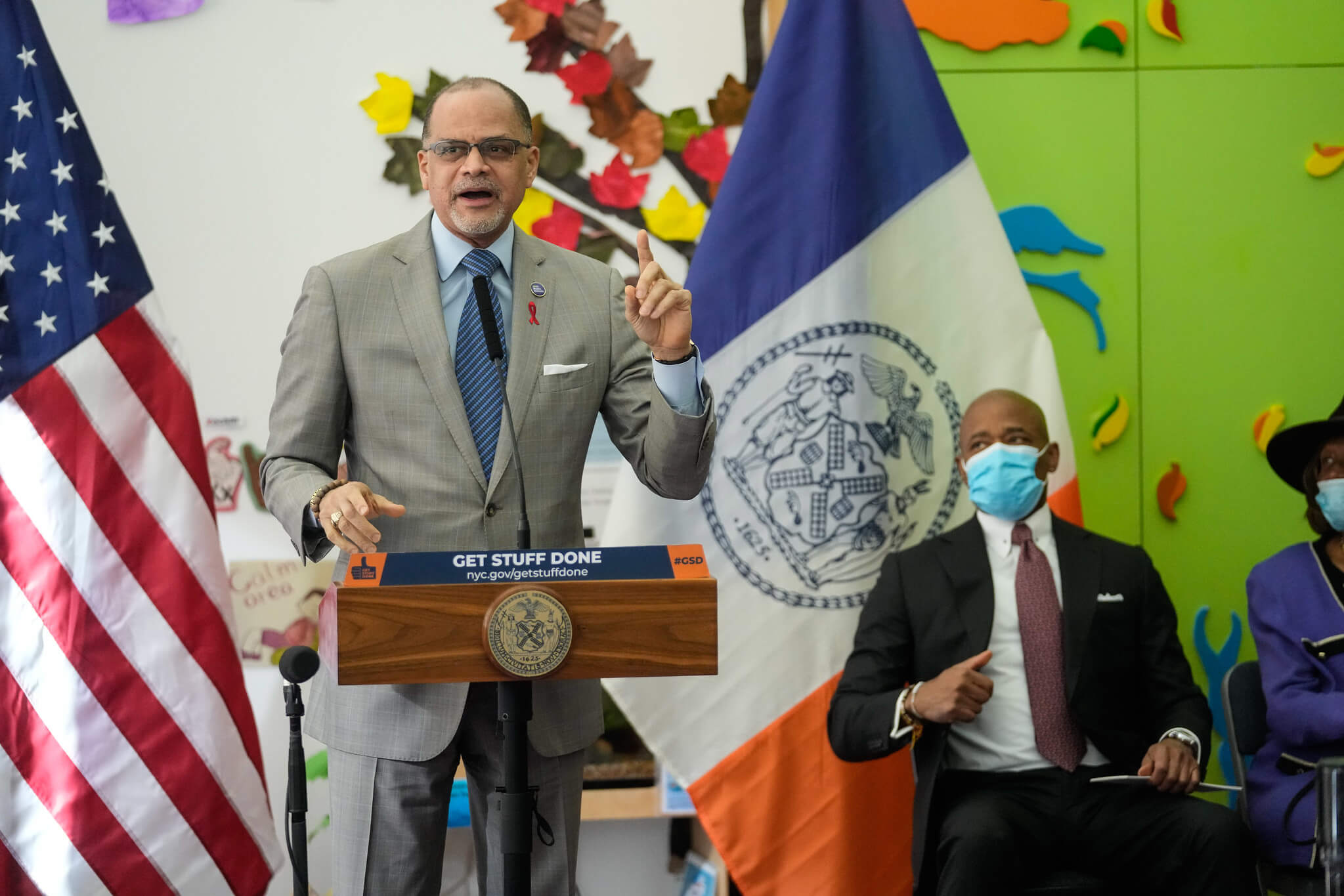
Banks said the expansion will provide enough seats to accommodate every preschool-aged student with a disability in the city.
“Today’s a very important day because this expansion will open enough preschool seats to serve every single preschool child with disabilities across the five boroughs,” Banks said. “This is a big deal because, for far too long, this term ‘for all’ has been thrown around. But in this sector, for all did not necessarily mean for all.”
Banks said the 800 new seats will be added in two waves: 400 now and another 400 in the spring.
The allocation will also allow them to expand the school day for special education pre-K and 3-K students from five hours to six hours and 20 minutes – an extra hour and 20 minutes each day, bringing them in alignment with their general education counterparts.
“Now all students with disabilities will receive the same amount of class time as their general education peers,” the mayor said. “Imagine that: children who need it more were receiving less. That is just dysfunctional at its highest level. This will help our children absorb more and also reduce their parents’ childcare burden.”
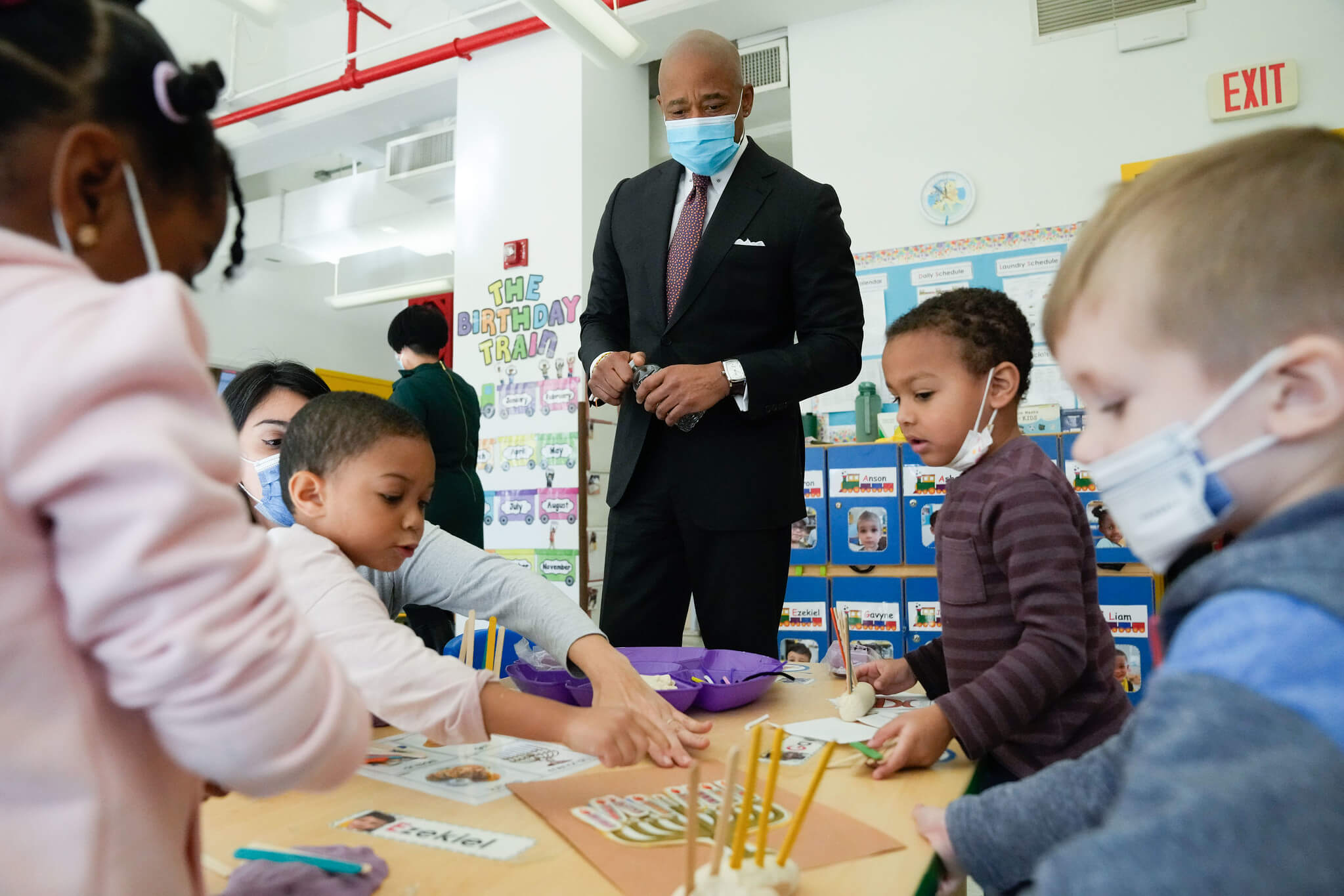
Additionally, Banks said, early childhood special education teachers will now be paid at the same rate as their general education equivalents. The long-standing pay disparity in this area, Banks said, has made it difficult for the city to retain staff for early childhood programs that serve students with disabilities.
“We had several instructors over the years who would leave because they also had to figure out how to take care of themselves and they had better paying opportunities in other places,” Banks said. “We need them to stay right here in places like this to work with our babies. And so we’re working to continue to close that gap.”
DOE Deputy Chancellor Dr. Kara Ahmed said special education teachers’ yearly salaries will increase from roughly $50,000-58,000 to about $68,000-70,000, during a question and answer session following the news conference. The allocation, Ahmed added, will also fund the recruitment and training of more early childhood special education teachers.
The rise in compensation is expected to lead to better staff retention, Ahmed said.
“When you hear from families across New York City, especially families who have children with disabilities, they talk often about making sure that they have adults that they can rely on and that, once their children are in these trusting and safe relationships, they don’t want to lose them,” she said. “And so we don’t want to either.”



